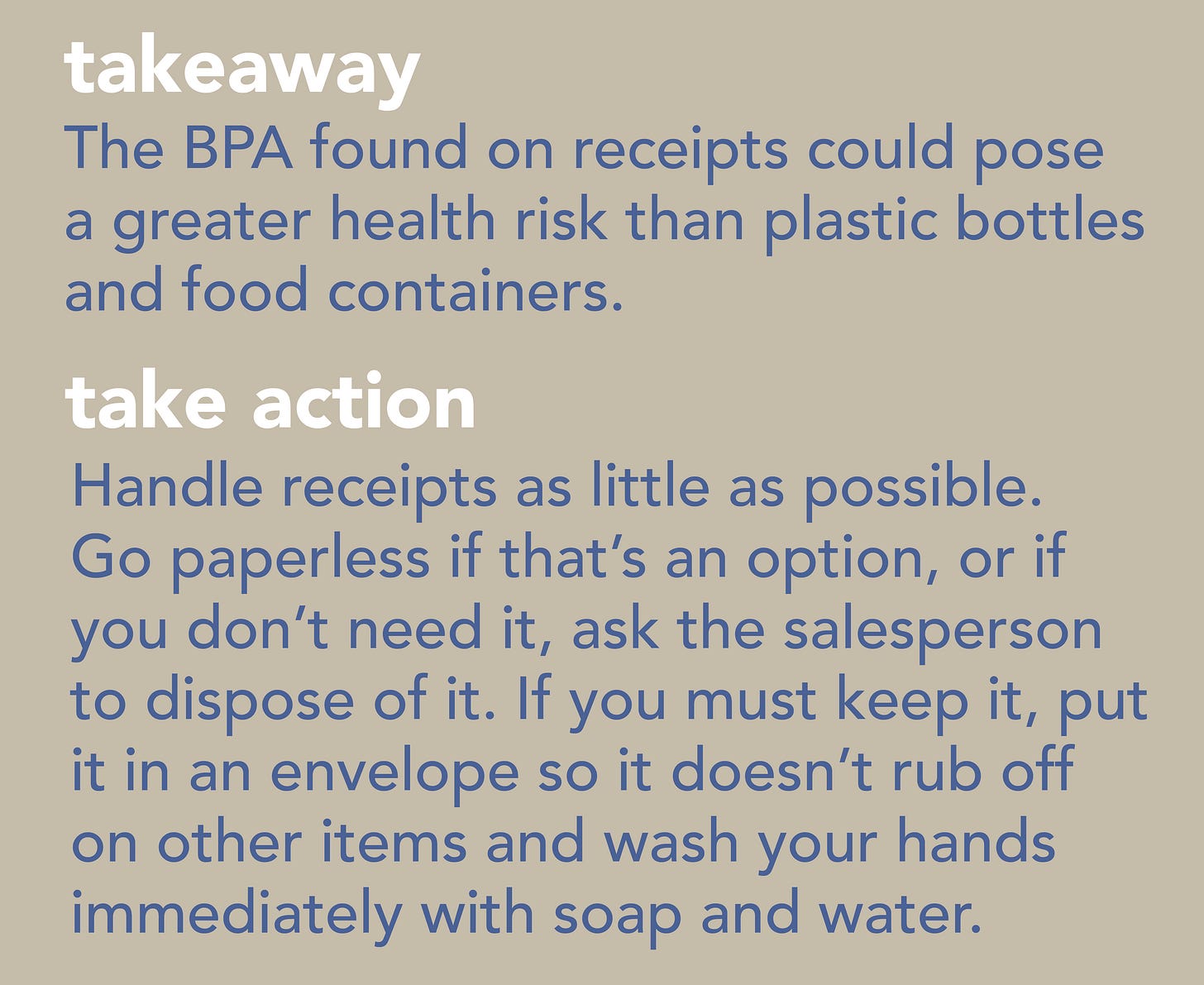Tea Time for Health, Olive Oil Feeds Your Brain, Receipt Risks, and Not Boiled Hardboiled Eggs
Lightbulbs & Pearls | 007
Tea May Alleviate High Blood Pressure
Reading “The Blue Zone, 9 Lessons for Living Longer” turned on so many lightbulbs, this one is but one of many. For those not familiar with the term, the Blue Zones are unique communities around the world where a concentration of people have healthspans into their 100’s. Meaning, they don’t limp to their 100th birthday, they spring over it.
While the Blue Zones’ longevity is a synergistic puzzle that works in harmony on many levels, we can adopt many of the individual lessons in our own lives. The Ikarians in the Greek Blue Zone have a very interesting daily habit of consuming a variety of herbal teas. Teas made from wild oregano, sage, hibiscus and rosemary can lower blood pressure; chamomile tea contains properties that guard against platelet clumping; and peppermint tea has antiviral properties. (It’s important to note they drink these teas in rotation so as not to load up on one particular compound.)
All of the teas also share two other notable features: number one, they are a rich source of polyphenols which have strong antioxidant properties, and number two—and perhaps the biggest lightbulb—they are a mild diuretic. The importance of a diuretic is twofold: they flush our bodies of natural waste that can cause damage over time, and they lower and control blood pressure.
Olive Oil Benefits the Brain
There is a lively debate in the health space about the toxicity of seed oils and whether or not they should be avoided at all costs. At this point in an argument, I typically go back to basics…and in this case, I go back a couple of millennia. Olive oil has been around for literally a couple thousand years, and the gentle method of cold pressing makes it both the least processed of all the oils and the most healthy.
Now, there is evidence the phytochemicals found in olive oil may actually improve brain health and enhance the function of the delicate blood-brain barrier, which breaks down in the early stages of cognitive dysfunction. Its phenolic compounds are actually able to cross the blood-brain barrier to counteract free radicals in the nervous system and to guard against mitochondrial oxidative stress and neuroinflammation. Research is also showing that extra virgin olive oil has the ability to restore blood-brain barrier function, improve brain connectivity, and reduce the symptoms of Alzheimer’s and associated diseases.
As a staple in the Mediterranean diet (and several of the Blue Zone diets), olive oil has long been touted for its anti-inflammatory and antioxidant effects on overall health. These recent findings of the many neuroprotective benefits elevate EVOO to an essential tool in my longevity toolbox.
Risks of Thermal Receipts
For the past two decades, we’ve been warned about the dangers of Bisphenol-A (BPA) from plastic water bottles. BPA is an endocrine disruptor and its laundry list of possible health maladies includes increased blood pressure, type 2 diabetes, heart disease, infertility, obesity, cancer in adults and in the brain and prostate gland of fetuses, infants and children, even deleterious effects on children’s behavior.
It definitely was on my radar when our son—who is now 16—was a baby and I switched to glass and stainless-steel drinking bottles and food storage containers. But I recently came across even more scary BPA information: the seemingly innocuous grocery store thermal paper receipt we hold and crumple could pose a much greater risk.
According to John Warner, Ph.D., president of the Warner Babcock Institute for Green Chemistry, “There’s more BPA in a single thermal paper receipt than the total amount that would leach out from a polycarbonate water bottle used for many years.” Even “BPA-free” thermal paper use BPS, a similar chemical. Both chemicals are easily absorbed through the skin, and scientific studies have shown that alcohol-based cleaners and lotions increase the ability of the skin to absorb BPA and BPS up to 185 times higher! Which means, in this case, those omnipresent sanitizers make matters much, much worse.
Hardboiled Eggs That Aren’t Boiled
I am an egg enthusiast, have been for a very long time, even through the decades where they were maligned as unhealthy. For some reason that didn’t resonate with me, so it didn’t phase me much and thank goodness it didn’t. Now, eggs are heralded for what they are: a nutrient-rich superfood with an excellent source of protein and among the best sources of dietary choline which is essential for brain and nervous system function.
Hard-boiled eggs were an integral part of my childhood. My mom put them in tuna salad, potato salad, and deviled eggs were a delicacy for special occasions we all savored. Cooked eggs were a staple in our refrigerator and still are to this day.
Unfortunately, my devotion is dampened when it comes time to crack and peel the little guys. Over the years, I have tried nearly every cooking method that people swear as The One, each with limited long-term success. For years my go-to has been to put the eggs in a saucepan of water, bring the water up to a boil, cover the pot and turn off the heat. After 15 minutes, I drain and rinse with cold water. Sometimes they peel easily, sometimes the poor little white gets shredded. Aghhhhh!
Although I was going down the correct path with this gentle approach, it was far from foolproof. Today, I’m happy to report that it’s only taken me 45 years of boiling uncounted batches of eggs, but I believe I’ve finally found the holy grail and it’s not boiling at all. It’s steaming. Yup. Steaming.
I’ve tried this out over the last month and the results are proving to be consistent easy-to-peel eggs. Even within this technique, there are variations, but here is what I’ve been doing:
• Place eggs on top of a steaming basket over about an inch of water in a saucepan.
• Bring the water up to a boil and cover the pan.
• Keep the water at a medium rolling boil so the steam is fairly vigorous. (If it’s too low the eggs won’t thoroughly cook...trust me, I know.)
• Steam for 14 minutes.
• Prepare a bowl with ice water. I put about 10 ice cubes in the bowl.
• Immediately submerge the steamed eggs into the bowl and leave until the ice melts and the eggs are well chilled. (This is essential for the egg to contract away from the shell.)
Voila. Happy peeling!














Yes, good point Regina. We source local olive oil, often at the farmers' market, and I especially like to support small farms and vendors. As far as water bottles, I use glass in the fridge and good-quality stainless steel for our desk, but I've considered the glass option there as well.
Regina: our family uses insulated stainless steel water bottles. Favorites are from YETI, ThermoFlask, and Camelback.